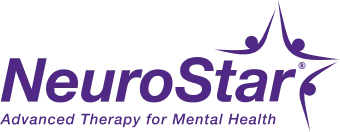People with major depressive disorder (MDD), obsessive-compulsive disorder (OCD), or major depressive disorder with anxiety who have not responded to medication and are seeking alternative approaches should learn how NeuroStar TMS Therapy in Albany works. We offer TMS in New York’s Capital District.
How TMS Therapy Creates Positive Changes
Conditions such as MDD, OCD, and MDD with comorbid anxiety are caused when the nerve endings and synapses in a person’s brain stop working correctly. Scientists have found that if underactive areas in a brain are stimulated, neuron and synapse function could improve, enhancing brain function.
Transcranial magnetic stimulation (TMS) stimulates those areas using a specialized device that sends electromagnetic waves to underactive areas of the brain. The magnetic field it creates is similar to that produced by a standard MRI machine.
This intermittent stimulation leads dormant synapses to return to normal function. If the neurons remain turned on and functioning normally, a patient generally will feel their symptoms are in remission. People often notice how their mood slowly improves over multiple treatment sessions. TMS therapy can create extended relief that can last up to a year. Learn more about how NeuroStar TMS therapy works by arranging a consultation with our Albany team.
Does It Work?
In a large study of people with major depression who were unresponsive to standard treatments, 83 percent of patients who completed their TMS therapy saw measurable improvement in depression symptoms (Sackeim HA, et al. (2020). J Affect Disord, 277:65 74. Based on a real world, retrospective study using CGI-S and a sample size of 615 patients). These are people just like you who have not found adequate, acceptable treatment for their depression through standard prescription antidepressants. Trying a wider variety of medications did not bring them the level of relief that NeuroStar TMS therapy did.
In that same study, participants had a 62 percent remission rate, which suggests that more than six out of 10 people who completed their course of NeuroStar treatment did not feel their depression return (Sackeim HA, et al. (2020). J Affect Disord, 277:65 74. Based on a real world, retrospective study using CGI-S and a sample size of 615 patients).
By comparison, the remission rate was only seven percent in a study of patients who had sought relief from three or more antidepressant drugs (Results from the STAR*D study, medication attempts (n=4,041), Trivedi (2006), Am J Psychiatry | Rush (2006), Am J Psychiatry | Fava (2006), Am J Psychiatry | McGrath (2006), Am J Psychiatry). NeuroStar TMS therapy seems to work for many people.
Comparisons Between TMS Therapy and Other Approaches
Patients at our Albany clinic found NeuroStar TMS Therapy worked differently than medication or psychotherapy.
Medications
Medications for mental health disorders typically work by altering the levels of neurotransmitters—such as serotonin, dopamine, or norepinephrine—in the brain; and are absorbed through the digestive tract. As a result, they often engender unwanted side effects. Unlike medication, there are no systemic side effects of medications with TMS Therapy; if a patient is taking other medications, TMS therapy will not interfere.
Psychotherapy
Psychotherapy involves talking to a trained therapist to explore and address thoughts, feelings, and behaviors that contribute to mental health issues. It aims to promote insight, coping strategies, and behavior change. While psychotherapy is a great way to communicate problems, when there is a chemical imbalance in the brain, it can be difficult to treat depression with psychotherapy alone. TMS can help.
Ask Our Albany Team About How NeuroStar TMS Therapy Works
When you are looking for a new approach to treating your major depressive disorder (MDD), obsessive-compulsive disorder (OCD), or major depressive disorder with anxiety, TMS therapy may be right for you. Understanding how NeuroStar TMS Therapy works in Albany could be your first step toward a better mindset. Call today for an appointment at our Capital District office and start your journey toward improved mental health.
Adult Indications for Use
The NeuroStar Advanced Therapy System is indicated for the treatment of depressive episodes and for decreasing anxiety symptoms for those who may exhibit comorbid anxiety symptoms in adult patients suffering from Major Depressive Disorder (MDD) and who failed to achieve satisfactory improvement from previous antidepressant medication treatment in the current episode.
The NeuroStar Advanced Therapy System is intended to be used as an adjunct for the treatment of adult patients suffering from Obsessive Compulsive Disorder (OCD).
Adolescent Indications for Use
NeuroStar Advanced Therapy is indicated as an adjunct for the treatment of Major Depressive Disorder (MDD) in adolescent patients (15-21).
Important Safety Information
NeuroStar Advanced Therapy is only available by prescription. A doctor can help decide if NeuroStar Advanced Therapy is right for you. Patients’ results may vary.
The most common side effect is pain or discomfort at or near the treatment site. These events are transient; they occur during the TMS treatment course and do not occur for most patients after the first week of treatment. There is a rare risk of seizure associated with the use of TMS therapy (<0.1% per patient).
Visit neurostar.com for full safety and prescribing information.


